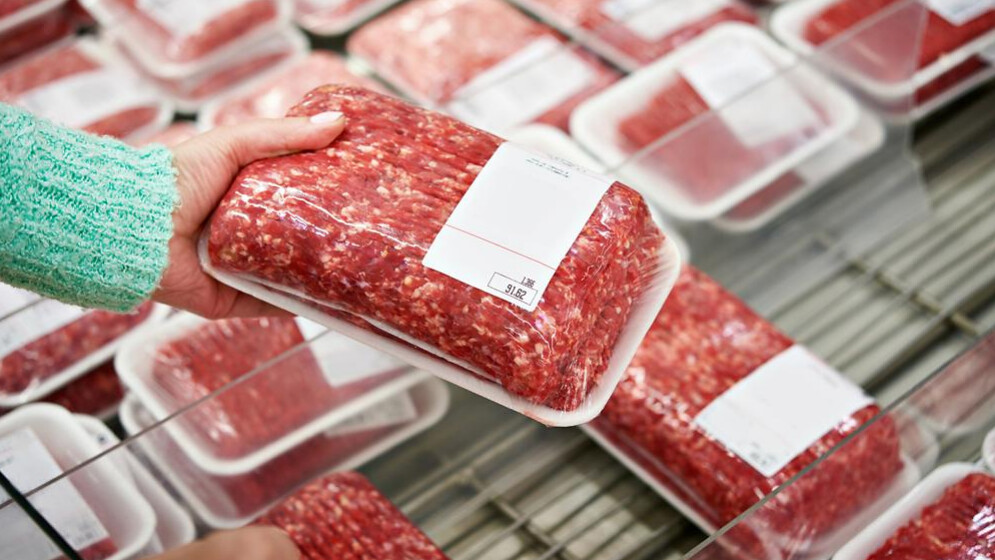Source: WSB radio
The wave of using 'reusable shopping bags' has made its way across certain states -- to become popular in some while losing appeal in others. Why do some people love 'reusable shopping bags' while others do not? Who knows? Maybe due to the fact that in between usage, authorities advise to clean the shopping bags and sterilize them. The simple build up of bacteria from poultry or beef before cooking could cause enough harm to consumers if not minimized in between each trip to the store. Which brings me to the point of this blog post (which is short to say the least): Did you know that beef and poultry can be sold with bacteria in the United States?
I was not aware of this revelation. Prior to Thanksgiving, Politico Agriculture sent out a newsletter which contained the revelation which entailed that certain products are allowed to be sold with bacteria known to be present:
TURKEY AND FOOTBALL, MA EDITION: In the lead-up to the Thanksgiving season, consumer advocates pressured USDA's Food Safety and Inspection Service to disclose the owners of 22 turkey slaughter operations and seven processing plants tied to an outbreak of Salmonella that has caused 164 illnesses and one death. The outbreak has persisted for more than a year, and only ground turkey has been recalled, but the Thanksgiving holiday renewed food safety advocates' sense of urgency.FSIS responded to the calls with a terse statement. The agency said authorities have yet to pinpoint a single common supplier of the tainted turkey products. It then used a football metaphor to push back, arguing that trace-back investigations aren't done through "Monday morning quarterbacking from the comforts of an urban high rise in New York City or K Street in Washington, D.C., with fundraising pleas attached."Sarah Sorscher, deputy director of regulatory affairs for the Center for Science in the Public Interest, called the statement "disappointing" and said FSIS officials were "taking a page from Trump's playbook."The drama underscores a little-known fact: FSIS doesn't have the authority to issue a mandatory recall because it is legal for the meat industry to sell Salmonella-contaminated meat in the marketplace. The rationale is that consumers can protect themselves by cooking the meat thoroughly, thus killing the bacteria."Essentially, it's not the responsibility of the industry to fix a salmonella outbreak, but it's up to the consumer to cook the s--t out of their food," said Bill Marler, a leading food safety plaintiffs attorney based out of Seattle.FSIS can gather evidence that a company is linked to a foodborne illness outbreak and request that they issue a voluntary recall. That threshold is incredibly high, however.'Holy grail': The agency has to locate an unopened container of the product in a sick person's home before it can request a voluntary recall. That unlikely event — which Marler calls "finding the holy grail" — occured in Arizona last week, when FSIS officials found an intact, unopened package of Jennie-O ground turkey in the home of someone who had reported an illness. The package tested positive for the outbreak strain, and Jennie-O issued a voluntary recall of 91,000 pounds.But Jennie-O is only a piece of the larger outbreak puzzle, as FSIS officials said patients have reported eating and handling a variety of different turkey brands.
What do we learn from the above excerpt? That the responsibility to keep Salmonella along with other bacteria out of your beef products is your responsibility. Wow! If that is the case, then why don't regulators come down harder on the movement for 'reusable shopping bags' to ensure safety from additional bacteria-based outbreaks? The answer lies in the placement of responsibility ultimately.
With the holidays just beginning with future meals planned, be careful about handling meat. From the package (plastic bag or packaging) to the oven in which you place the beef. Keep sanitary procedures in place to be consistent. Furthermore, be careful when using 'reusable shopping bags' - be mindful of potential bacterial contamination to the remainder of your food. By practicing safe handling, the responsibility which has been placed in our hands (by regulators and manufacturers for safety) is upheld and keeps people safe in the time being. Each of us have a responsibility to make this potential threat known to other family members and friends.
Related Blog Posts:
A Forecaster Predicts That Hurricane Florence Will Drop Enough Rain To Fill 18,400 Mercedes-Benz Superdomes
Hurricane Harvey Drops Enough Rain On Houston To Fill 560 Dallas Cowboy Stadiums
How Much Water Is Contained In All Oceans Around The Globe?
Storm Raises Water Level In Lake Cachuma By 31 feet, How Much Water Is That?
How To Make Sense Of Water Flowing At 100,000 Cubic Feet Per Second
Can 11 Trillion Gallons Of Water Fill 14,000 Dallas Cowboys Stadiums?
How Much Rain Did The East Coast Receive From Hurricane Matthew?
How Much Rain Did Haiti Really Receive?
How Big Was The "Water Bomb" Of Rainfall In Macedonia?
How Much Rain Did Elliot City (Maryland) Really Receive?
If The Mosul Dam Breaks, The City Of Mosul Would Be Under 65 Feet Of Water?
What is the volume of water in a few inches of rain?
Volume of Waste in the Mine Spill (in Brazil) Equivalent to 78 Deepwater Horizon Oil Spills

No comments:
Post a Comment